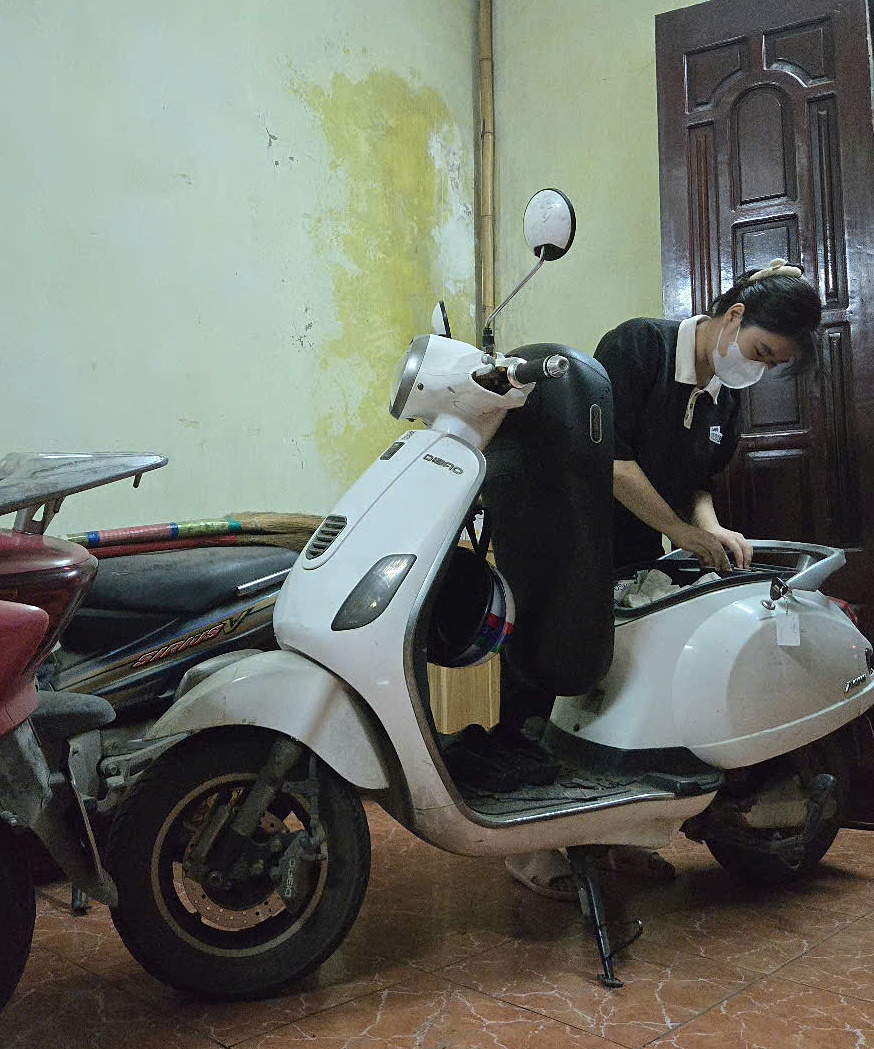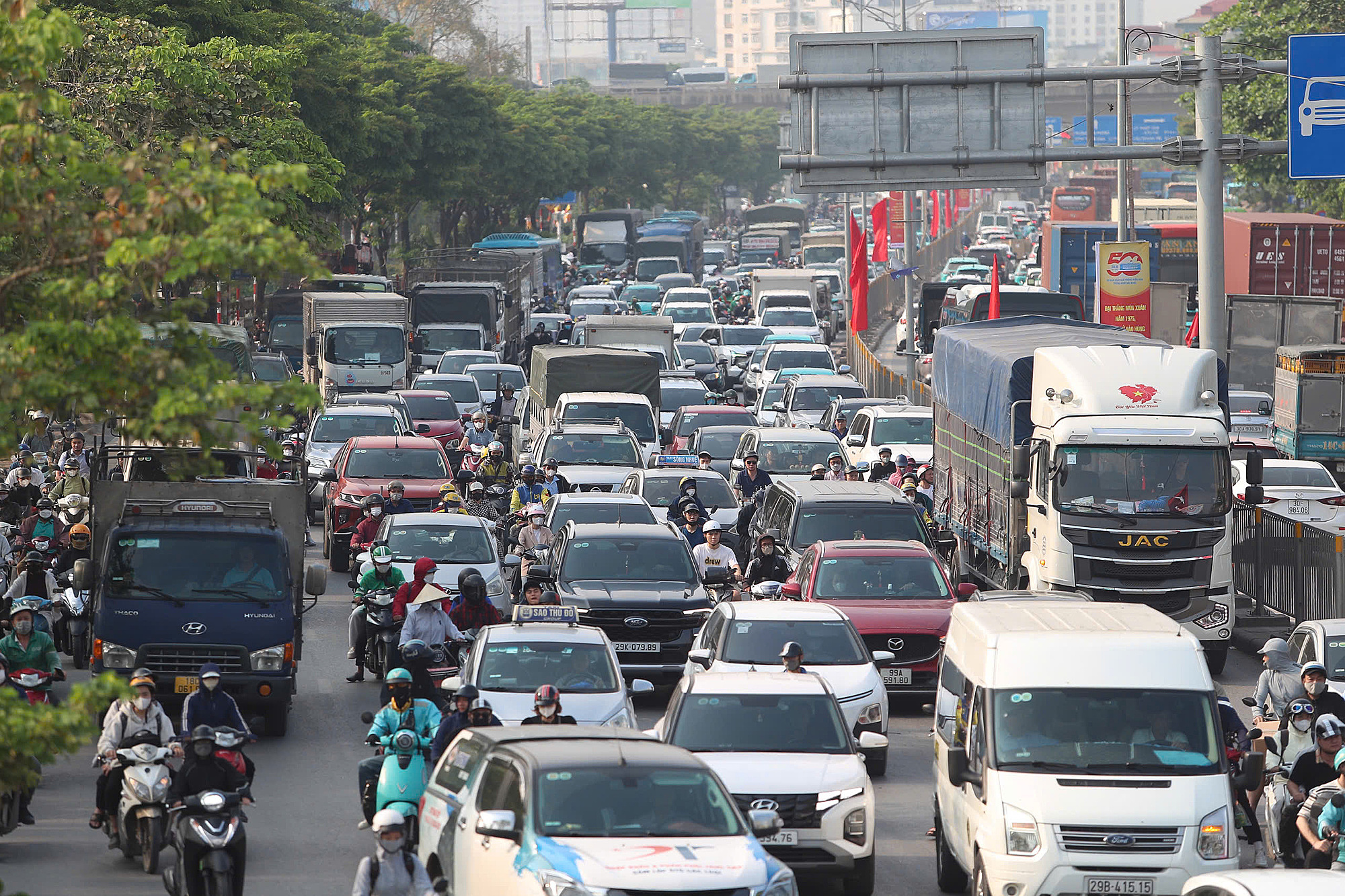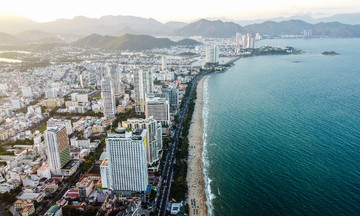"My family has 6 motorbikes, the newest is three years old, and the oldest is almost 30. They are all essential for our livelihoods," said 70-year-old Van Hung, a resident of Ba Dinh ward.
Mr. Hung and his wife sell chickens, traveling over 40 km daily to Ha Dong to pick up their stock. His two sons work as delivery drivers and ride-hailing service providers. The remaining family members, including office workers and students, also regularly commute. The proposed ban on gasoline-powered motorbikes within Ring Road 1 next year has left the entire family deeply worried.
Directive 20 from the Prime Minister mandates that Hanoi eliminate fossil fuel-powered motorbikes within Ring Road 1 by 1/7/2026. Subsequent phases will restrict gasoline and diesel-powered personal cars within Ring Roads 1 and 2 from 2028 and expand to Ring Road 3 by 2030.
"We understand this policy aims to reduce pollution, but for working people like us, the benefits are unclear, while the difficulties are obvious. Where will we find over a hundred million VND to buy 6 electric motorbikes by next year?" Mr. Hung asked.
The 70-year-old explained that three years ago, his family purchased an electric motorbike, hoping to save on fuel costs. However, after a few months, they had to sell it. He often forgot to charge the bike after a tiring workday, leaving him without enough power to travel the next morning. Fearful of fire hazards, he and his wife also avoided overnight charging.
His biggest disappointment was the electric motorbike's limited carrying capacity, unable to transport two people and cages of chickens. After a few months of use, the battery quickly deteriorated, forcing them to resell the bike at half its original price.
Now, Mr. Hung can't imagine his yard filled with 6 electric motorbikes charging every night. A power outage would leave the entire family stranded, unable to work or attend school.
 |
Mr. Hung's niece checks the battery of their old electric motorbike before selling it in late 2024, as it didn't meet the family's needs. Photo courtesy of the family. |
Mr. Hung's niece checks the battery of their old electric motorbike before selling it in late 2024, as it didn't meet the family's needs. Photo courtesy of the family.
However, Hoang Minh, a 35-year-old office worker residing on Lang Street, Dong Da, supports the policy. Living in Chuong My, he has combined electric motorbike use with the elevated railway for his daily commute for over a year.
He acknowledges that using public transport with an electric motorbike requires leaving earlier and traveling slower. However, he appreciates avoiding air pollution and saving nearly one million VND per month on fuel.
"Combining electric motorbikes with public transport makes commuting quicker and protects the environment," Minh stated.
The topic of banning gasoline-powered motorbikes from the city center is sparking heated debate on social media forums. One side supports the ban, viewing it as a necessary step towards a better quality of life. "I switched to an electric motorbike almost a year ago. It's quiet, doesn't smell of gasoline, and has low running costs. With additional support policies, many will surely make the switch," commented a user named Phi Long.
Conversely, many argue that the timeline is too rushed, creating hardships for families. They propose a gradual approach, starting with halting new registrations for gasoline-powered motorbikes, then phasing out older vehicles that don't meet emission standards every 5 years, coupled with support for citizens. Simultaneously, the government should invest heavily in green public transportation and infrastructure upgrades.
A July 13th VnExpress survey asking, "What do you think about Hanoi banning gasoline and diesel-powered motorbikes within Ring Road 1 from July 2026?" revealed that 58% deemed it unfeasible, 18% found it feasible, and 24% believed support policies for vehicle transition were necessary.
 |
Traffic congestion in Hanoi in late May 2025. Photo: P.C |
Traffic congestion in Hanoi in late May 2025. Photo: P.C
Associate Professor Dr. Bui Thi An, Director of the Institute of Environmental Resources and Community Development, supports the regulation but emphasizes a suitable implementation roadmap to avoid impacting social security. According to her, Hanoi has nearly 7 million registered motorbikes, mostly crucial for workers' livelihoods, making the transition a significant challenge for authorities.
"Without comprehensive alternatives and adequate support policies, people's lives will be disrupted," An said.
Dr. Nguyen Xuan Thuy, a transportation expert and former Director and Editor-in-Chief of the Transport Publishing House, states that air pollution is a pressing global issue. Hanoi and Ho Chi Minh City have recorded high concentrations of particulate matter, nitrogen oxides, carbon monoxide, and smoke. Besides vehicle emissions, power plants, coal, and industrial zones are direct pollution sources requiring strict monitoring.
In 2024, Hanoi identified 5 primary air pollution sources: road transport (including road dust), industry, residential activities, biomass burning, and agriculture.
Research from the Institute of Environmental Science and Technology, Hanoi University of Science and Technology, shows that gasoline and diesel exhaust from traffic contribute 46% of fine particulate matter. Volatile organic compounds from motorbikes account for over 90% of total traffic emissions. Motorbikes are the largest emission source, followed by heavy trucks, buses, and light trucks.
"However, any action requires necessary and sufficient conditions to avoid disrupting people's lives and creating unnecessary complications. This will ensure widespread support," Thuy said.
Associate Professor Dr. Bui Thi An suggests that instead of setting rigid deadlines, authorities should implement comprehensive solutions, including supporting vehicle transitions, upgrading green transport infrastructure, addressing the lack of charging stations, and ensuring punctual and convenient public transport.
For the past four years, 28-year-old Gia Linh has commuted 80 km daily by motorbike from Me Linh to Hang Da Street, Hoan Kiem district, to work and return home to save money as rental prices rise. The office worker previously used the bus but had to transfer twice and was often late due to traffic jams.
For Linh, a gasoline-powered motorbike is the optimal choice due to the widespread availability of gas stations, maneuverability, and minimal maintenance. The news of the ban has left her distraught. Linh believes electric motorbikes are only suitable for short commutes with ample charging time. For someone with a long daily commute like her, the battery would quickly degrade, requiring a 2-3 million VND replacement every two years.
"I support reducing emissions, but why target motorbikes, the livelihood of the majority, instead of personal cars, which emit more and occupy more space?" Linh questioned.
Duong Quynh












